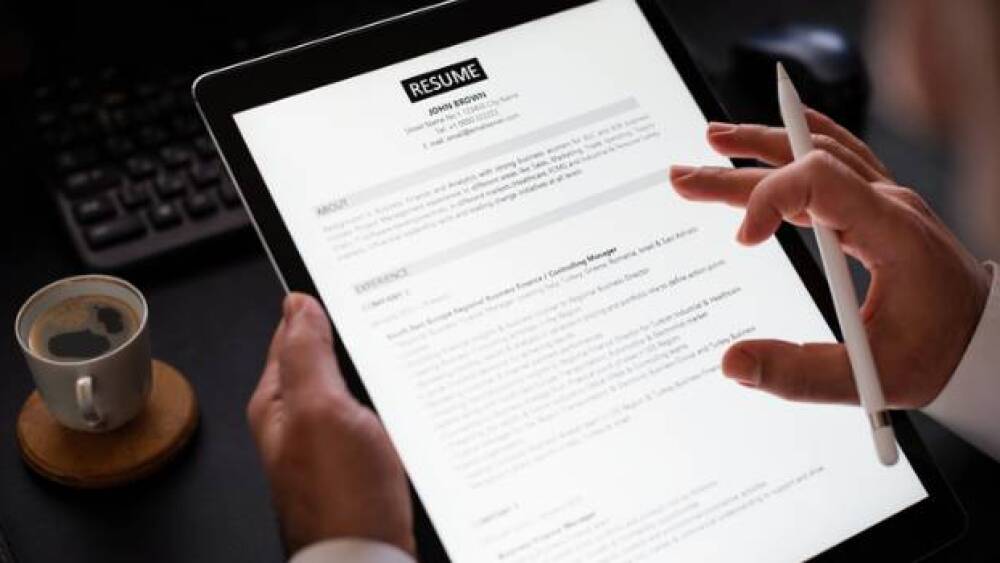Providing interview feedback to the candidate after an interview is very crucial if you want to pick out only the best. This article will help you do that efficiently.
Providing effective interview feedback to the candidate can help you pick some of the best professionals
When looking for the best candidate for your team, you’ll likely have to go through a long hiring process. You’ll need to provide feedback to organize yourself to pick the perfect one for the job.
This article will teach you how to evaluate a candidate and learn how to write effective interview feedback.
RELATED: How Thinking Like a Salesperson Can Help You Land Your Dream Job
How Do You Evaluate a Candidate after an Interview?
Evaluating a candidate during an interview doesn’t all boil down to if he/she is capable. You need to consider other things as well.
Here are the things you need to consider when evaluating someone for an interview:
Educational background: Especially in our field, education is essential to be considered. The more you know, the more valuable you become.
Work experience: Experience is as important as academic knowledge. The more experience candidates have, the more valuable they are.
Special skills/technical skills: In line with work experiences, having special and technical skills is essential to have if that skill can contribute a lot to the research and developmental projects.
Body language: You’ll know if a person is confident or holding back through their body language.
Leadership quality: You can judge a person’s leadership quality through their ability to grow further if he/she works with you.
Critical thinker/problem solver: Giving out scenarios and fixing them is a great way to judge a person’s ability to think critically or solve problems under pressure.
Communication skills: Working with a team and collaborating with other professionals can be judged by the way they communicate with you.
Attitude: A great attitude helps maintain a positive work environment.
How to Write a Positive Interview Feedback + Examples
Now that you know how to evaluate a candidate in an interview, here you’ll learn how to write positive interview feedback:
1. An Answer
Straight off the bat, you need to be clear about the answer if it is a “hire” or a “no hire.”
The answer should be on the first line of your feedback.
2. Summary
This part of the interview feedback answer why you hired or why you didn’t consider a person for the open position. This is written right after the “hire” or “no hire” part.
Example: “Hire - [name of candidate] expressed excellent communication skills. He was able to showcase the skills needed for this job opening. He demonstrated outstanding data analysis and research skills. He is very knowledgeable about this position and this industry.”
3. First Person Description
The following paragraph or sentence will talk about the candidate from the first-person point of view. This part will talk about your personal experience with the candidate.
It answers questions such as: will he/she fit the company/team/organization? Did he/she answer all the questions correctly? Were they engaged in your conversation?
Example: “I liked how [name of candidate] expressed his opinion about the new trends in the biopharmaceutical field and agreed on him on most parts. He is straightforward and can remarkably fit the data and research team.
4. List Down The Pros and Cons
For the candidates’ reference and yours, you need to list down the pros and cons of an interview. List down the pros for them to keep that trait and cons to know what they can improve.
This is where you find the strengths and if you can consider him in the future if you are not interested yet in him.
Example: “[Name of candidate] expressed a great knowledge in drug development but we are currently looking for people in data and analytics. In the future, we can consider him if a role in the development comes up.”
5. Are They Capable?
The last part of the interview feedback is writing and judging the candidate if he/she can work and do what is required of him/her.
Example: “[Name of candidate] possesses enough knowledge about our company. [He/she] is familiar with our ongoing project and is a perfect fit for our team. [He/she] is capable of working with us and can be on-boarded without much training.”
RELATED: 5 Ways to Overcome Age Discrimination During Your Job Search
Do’s and Don’ts of Writing an Interview Feedback
Do’s
1. Be Honest
Always be honest in interview feedback and tell the person what you thought about the interview. Be straightforward and, at the same time, careful about the words you will use.
But don’t tell them everything. They deserve the truth but not everything. Ensure the feedback you’re telling them is about the job requirements and not criticizing the dress or suit she/he wore during an interview.
Keep it professional and still job-related.
2. Critique Creatively
Provide specific yet real-life feedback. Don’t give them generic or broad comments like “we want someone with more experience in biotech” or “we’re looking for someone with more knowledge in research.”
Instead, offer advice and how they can improve personally and professionally. This is where keeping notes during an interview is useful. Use them to point out specific things to point out in your interview feedback.
3. Be Tactful
Be mindful and sensitive about how a candidate is and feels during an interview.
Some might shiver due to nervousness during an interview but don’t call that out. Some people are just uncomfortable at first and can be helpful and confident after a few meetings.
Instead of calling them out, offer advice on working under pressure when dealing with biopharma and biotech tasks.
4. Praise The Interviewee
Feedback after an interview, especially if it didn’t go well, doesn’t have to be negative all the time. Learn how to praise candidates as well. It can help them build their confidence.
Pointing out good thoughts during an interview can help them become better professionals by keeping these excellent qualities.
5. Make Suggestions
Aim to help. Just like praising a candidate, make suggestions of traits you’ve noticed during an interview.
It may not be with your company, but the next time the candidate undergoes an interview, he/she would know what to improve on.
Don’ts
1. Don’t Be Condescending
You don’t have to be rude and be condescending when giving out interview feedback. Yes, you have more power over him/her during an interview situation, but that doesn’t give you the ability to think that you are better than him/her.
Be mindful and adjust the tone of your feedback not to sound high and mighty but be neutral and helpful.
2. Don’t Create False Hope
At the same time, don’t be too kind and think that you are still considering a candidate even if you have no intention of really hiring them.
Don’t say you’ll keep their resumes on file if you don’t have the intention to. It can lead to resentment, which is always not great.
3. Don’t Compare
Especially when conducting a group interview, there is no need to say that one candidate is better than the other.
Do not compare. You want a person to improve if someone is better than them, and comparing them directly with other people would hurt the chances of them improving.
4. Don’t Be Careless
Always be careful of the words you use and how you say things. You wouldn’t want to expose yourself or the company to any legal risk. Be sensitive to the situation of each person you interview or talk to.
Always be positive and be helpful. That’s how you can provide effective interview feedback to candidates. These people can learn a lot just as much as you’ll learn from them.
Are you currently hiring and having this dilemma? How do you write your interview feedback to candidates? Share it with us.







